Tamae Kiyokawa
Nascimento : 1903-05-24, Shiba, Tokyo, Japan
Morte : 1969-01-21

Japanese comedy film.

Teruko
Coal miner Isamu Oba is forced to quit his village and leave his mother and siblings behind. Mining buddy Ichiro accompanies him to Tokyo, and the pair enjoy several "fish-out-of-water" sequences before finding employment at a boxing gym with trainer Sawada and his spunky sister Tomoko. The boys also find part time night jobs as roving minstrels in the club district courtesy of benevolent gang boss Asakawa. Of course, they run afoul of boss Karasawa's cruel gang. Karasawa also has it in for Asakawa, and this indirectly throws a spanner into the works as far as Isamu's burgeoning success as a kickboxer. When Asakawa 's HQ is burned to the ground by Karasawa's men, Asakawa tries to kill Karasawa - which, of course, leads to his own gruesome death. Isamu goes on the rampage with his sword, wiping out Karasawa and men.

Tami
An old man dies of heartbreak when a cruel landlord is about to repossess his land. The old man haunts the landlord from the grave. Since the man died in debt, his wife and daughter are indentured servants and are forced to work in the landlord's factory.

A middle-aged factory engineer trains, marries, and ultimately loses a teenage bride after she enslaves him to her whims.

Japanese comedy directed by Noriaki Yuasa.

Boarding house landlady
A story about four best friends and their lives inside and outside college. Then suddenly one of them receives a surprising offer to be a movie star.

Kume Oda

Japanese comedy film.

Second "Pfc. Story" sequel and the ninth and final sequel to "Story of Second Class Private", the only one in both series not directed by Seiichi Fukuda.

Set in the postwar turmoil, Akasaka no shimai paints a vivit portrait of the life of three sisters who struggle to live in Tokyo.

Otami

Kohei Misugi works in a vegetable market, but his ambition is to be a photographer. He is given his first opportunity to demonstrate his talent by the Sakura Film Company which offers him an assignment to "Cover Tokyo" with a camera. But he is disillusioned when he is told he must work together with Miharu, a good looking girl in the film company's publicity department. Then the fun begins.

Jidaigeki by Tai Kato

Mineko Furukawa
Story of young love in the hills.

Kitagawa Utamaro is a famous ukiyo-e artist known for his paintings of beautiful women. The courtesan who became his model became even more popular. Ocho, a resident of an apartment building, hears about this and secretly plans to follow Otose, the owner of Mizuta-ya, who became famous as Utamaro's model. At this time, the Kano school, headed by Kano Eikawa, which was under the control of the shogunate, is dissatisfied with Utamaro's fame and tries to compromise him…

The story follows Oshino, a geisha who is trying to start a new life with a lover who is a painter. However, her past filled with debts and pimps catches up to her.
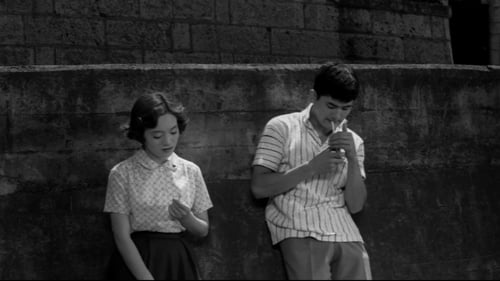
Хосогава
Nobuo is a hot-headed hoodlum fresh out of reform school who struggles to make a clean break with his tearaway past.

Tami - Mineya's wife
1957 drama from director Kôzaburô Yoshimura
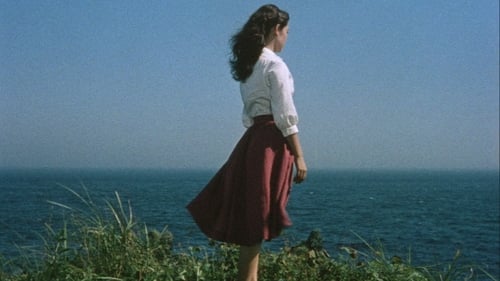
Após se formar no colégio, Yuko Ono está pronta para deixar o interior rumo a Tóquio. Na sua primeira viagem à capital japonesa, ela finalmente conhecerá seus pais, de quem estivera separada desde a infância. Antes da partida, recebe a notícia de que sua avó está à beira da morte e que tem uma revelação a fazer a ela. Yuko fica sabendo que sua verdadeira mãe nunca fora casada com seu pai, e que seu nascimento fora um evento indesejado para a família Ono.

A young man and woman are determined to marry despite opposition from her parents.

Shino (Rumiko's mother)

Mitsue Hayakawa
An Ishiro Honda film.
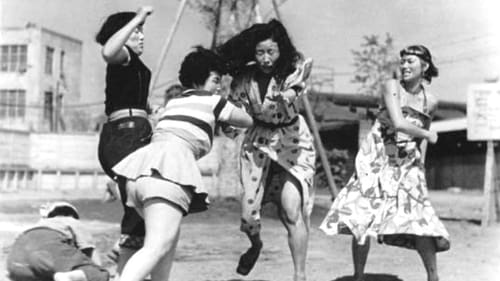
Toku, a factory worker gives food to a starving woman, Tsuru, who then follows him home. He shares a shack in a shanty village in Kawasaki with his friend Pin-chan. The two men try to get rid of her but then let her stay when she gives them money. Tsuru tells the people of the village that she lost her job due to a strike, then was robbed of her severance pay, then sold to a brothel in Tsuchiura. She ran away with a friend from Kawasaki. Toku and Pin-chan sell her to a geisha house and spend the money. She is thrown out. The owner demands his money back. Tsuru earns the money to pay their debt by working as a prostitute outside the station. The other prostitutes beat her. She fends them off with a policeman's revolver and is then shot dead by the police.

Japanese musical.
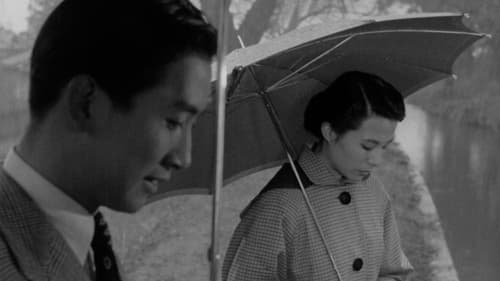
A sad and troubled man finds a new job five years after the end of WWII, where he writes love letters for other people.

A human billboard and a shoeshine girl met a kid of five who got separated from her mother at a street of Ginza. They try to find a mother in a crowded town...

Tomie Yoshida
1952 Japanese film directed by Kunio Watanabe.

Female boss
Japanese comedy film.

Tamae
Directorial debut by Umetsugu Inoue, the famous director of Musicals

1950s Japanese comedy.

Oyasu
Japanese drama film.

In a small town, according to the homecoming of Professor Ishinaka, the youth culture group was overwhelmed to make a presentation for the summer festival, but because of lack of funds, she works part-time at the spectacle of a tour, a haunted house Especially. The ghost was a struggle amongst the people, it was a great success in filling the crowd, but in the circus hut next to it, Kenji who was supposed to have disappeared was pitiful.
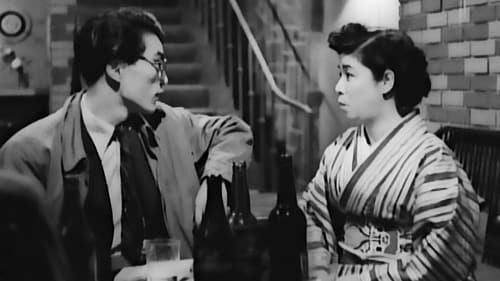
Saku Kineya
A luckless geisha struggles to make a living for herself and her young son.

Japanese "kayo" film based on the song "Ieraishan" by Yoshiko Yamaguchi.

Japanese comedy film.

Nurse Kida
One Sunday morning, Toshio Esaki, a young dentist, wakes up in his clinic. It seems that he was drunk and spent the night in the clinic instead of going home. When he goes into the laboratory to get a drink of water, he finds a woman wearing a green striped Western-style dress lying there.

Adaptation of a novel by Yojiro Ishizaka, originally released in two parts.

A bar girl tries to pass her three children, each from a different father, to rural relatives.

Melodrama by Kiyoshi Saeki

Tanuma Kandayuu is a high class samurai of the house of Nabeshima. He finds a lavish board of Go (a Chinese Board game) at Kinbei's store. He recommend Kinbei to offer it to his lord. Kinbei hesitates at first, since he knows the board has a mysterious legend surrounding it; it's believed that for every game played on the board, one death is required.

Police detective Heiji is assigned to catch the masked Maboroshi gang of robbers who have terrorized all of Edo leaving few clues as to who their leader is.

Aiko's mother

Kôfuku eno shôtai - Invitation to happiness

Lord for a Night is a 1946 Japanese film directed by Teinosuke Kinugasa.

Omatsu
In A Tale of Archery, young, timid bowmaster Kazuma (Akitake Kôno) seeks to beat the archery record set by Hoshino Kanzaemon, a mysterious figure who, it is rumored, drove the previous champion (Kazuma’s father) to suicide. Possessed of much raw talent, Kazuma is also very much a coward, holing himself up in an inn run by the kindly Okinu (Kinuyo Tanaka) and generally avoiding confrontation of any sort. Despite his clandestine manner, enough of the locals know of Kazuma’s purpose and an attempt is made on his life. He is saved by Karatsu Kanbei (Kazuo Hasegawa), a samurai who offers to help Kazuma hone his archery skills, though it soon becomes clear that this apparently selfless stranger has several potentially shady ulterior motives.

A small community in wartime Japan learn how to make do with less.

A self-absorbed young actor humiliates an elderly Noh performer, who then commits suicide. His act of cruelty compels his father to disown him, leading the once promising actor to a life on the streets. But his desire to win back the respect of his father and the affection of the dead actor's daughter pushes him toward a more noble existence. Naruse employed a delicately structured mise-en-scene in this family melodrama, which evokes the work of Josef von Sternberg.

Set in Qingdao, China, a Japanese company locates an office there and begins work and cooperation with a local Chinese company for business. Many Japanese engineers also move to China, with their families, for the company in order to construct a canal. There are young Chinese resisting the Japanese in this area.
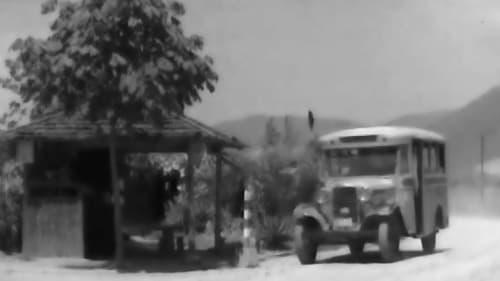
Innkeeper
Okoma, a witty young woman working as a conductor in an old, rickety bus in Kōfu, Yamanashi (rural Japan), has a creative idea that could avert the dwindling number of passengers when her job and the bus company itself are at stake.

Gin Odagiri
Adaptation of a novel by Nobuko Yoshiya that was serialized in "Shufu no tomo" between 1939 and 1940.

9th directorial work by Yamamoto Satsuo.

Twenty-year-old Yoshiko (Setsuko Hara) and her younger sister Asako (Yōko Yaguchi) struggle to accept changes in their home during the preparations of their widowed father's wedding to his chosen bride, Maki Tsuneko (Sadako Sawamura), who's anxious about her conduct as the bride.

This is a rokyoku film of Tenjuken Ungetsu II (Hideko Itami), a popular rokyoku performer who was famous for her seven different voices for men and women of all ages.

Hideko's grandmother
Hideko, a young Baseball fan, determined to cheer for her favourite baseball team by creating a new song for them.

Wartime propaganda filmed by the Japanese in occupied China, Shirley Yamaguchi portrays an orphan rescued from the streets by a kindly Japanese merchant marine officer. Part spy thriller and part Shanghai travelogue, it was part of a popular series known as "Chinese Continental Friendship" made by the occupying Japanese in China.
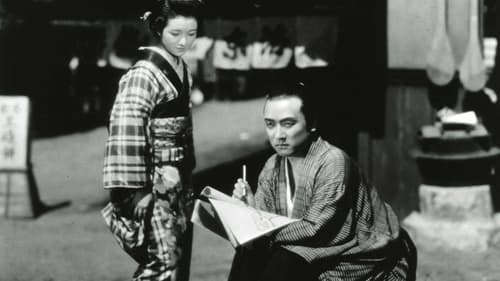
Omasa
A forceful indictment of the devastating effects of war and nationalistic fanaticism on the average man, who, in the face of the absurdity of violence, is reduced to apathy or victimhood.

The Old Man of the Propeller can be seen as a comedic amalgam of “King Lear” and “Christmas Carol”. A neighborhood loan shark is hounded by his relatives expecting big inheritance. But he is not giving any favor to anyone. His only joy of life is to go on junk hunt in the neighborhood, collecting garbages and scraps and selling them to junkmen to make profit.

A priest in Hokkaido adopts a blind orphan girl, and as she grows up he finds himself falling in love with her.
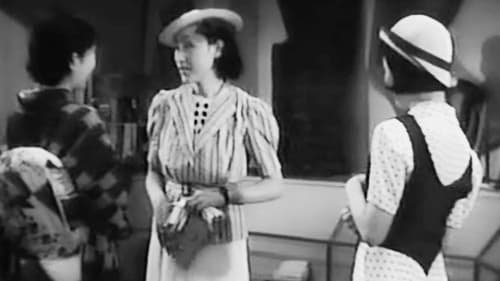
Part 2 of a 2-part romance (fist part - Kafuku zempen) based on a story by noted author Kikuchi Kan. In the second half, we discover that Toyomi is pregnant -- and while Shintaro and Yurie are on their extended honeymoon, she bears his child, a girl named Kiyoko. She is supported in adversity by Michiko -- and gets considerable moral support from not only her own mother but also from Shintaro's mother and siblings. Even more surprisingly, Yurie strikes up a friendship of sorts with her. When Yurie learns that the child is Shintaro's, she convinces Toyomi that it would be best to let Shintaro (and her) raise Kiyoko, so Toyomi can get on with making a proper life for herself. Tearfully, Toyomi agrees. Sometime later, Michiko goes to visit Toyomi -- and sees her at work, as a kindergarten teacher.
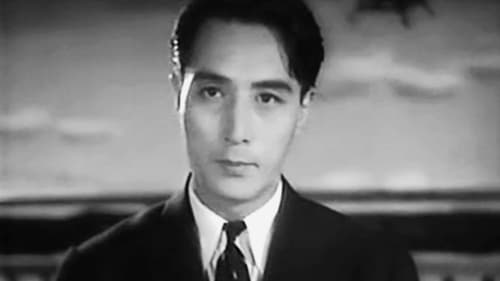
Part 1 of a 2-part romance based on a story by noted author Kikuchi Kan. The central character here is Toyomi (played by Takako IRIE, star of Mizoguchi’s "Water Magician), a rich young woman in love with Shintaro (Minoru TAKADA), a rich young man. Unfortunately, Shintaro’s father is in the process of arranging a marriage for him with Yurie (Chieko TAKEHISA), the scion of an even wealthier family. In order to avoid this, the two young lovers flee to Tokyo to live together. When Shintaro comes back to proclaim his intent to marry Toyomi, his father browbeats him into attending the long-arranged marriage meeting with Yurie. While Shintaro is back home, Toyomi goes on a vacation trip with her closest chum, Michiko (Yumeko AIZOME). At a class reunion, Toyomi is to distressed (at not having heard from Shintaro for so long), she doesn’t go out on the town with her classmates. Michiko, however, runs into Shintaro and Yurie (also out on the town), and pulling him aside, demands an explanation.

Japanese domestic drama.
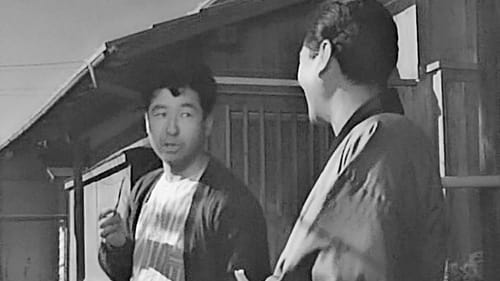
Madame at café
As suggested by the title, this film takes up the theme of the city, beginning with a series of traveling shots from Chiyo's point o view on a bus leaving the countryside and entering the metropolitan cityscape. After some fruitless job hunting in downtown Tokyo, Chiyo accepts a job as a bar hostess in Shiba ward. Well away from glamorous Asakusa and Ginza, this is a neighborhood bar where the women are dirt poor, each having only one kimono to their name....
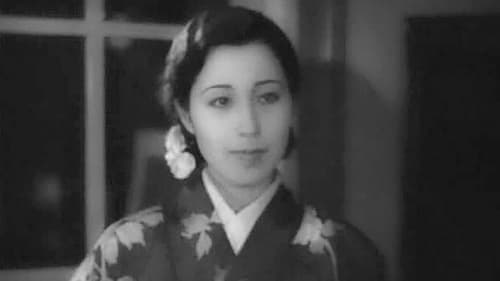
The otherwise promising young man Asaji (Heihachirô Ôkawa) and his younger brother Yuji (Hideo Saeki) face blighted lives because of society's disapproval of their illegitmacy and déclassé family.

Kaneda's Wife
1936 P.C.L. adaptation of Natsume's novel.

Adaptation of Fumiko Hayashi's novel.
































